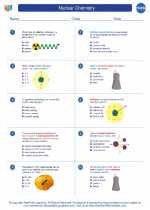Community
A community is a group of people who share a common location, interest, or goal. In the context of biology and ecology, a community refers to all the populations of different species that live and interact in the same area. In sociology, a community can be defined as a group of people who live in the same area and share common interests, values, and norms.
Types of Communities
Communities can be classified into different types based on various factors such as size, location, and common interests:
1. Ecological Communities
Ecological communities are groups of different species that live and interact within a specific habitat or ecosystem. These communities can range from a small pond to a large forest, and they play a crucial role in maintaining the balance of the ecosystem.
2. Urban Communities
Urban communities refer to groups of people living in urban areas such as cities and towns. These communities are characterized by high population density, diverse demographics, and a wide range of social and cultural activities.
3. Virtual Communities
In the age of the internet, virtual communities have emerged, where people with shared interests or goals connect and interact online. These communities can exist through social media platforms, online forums, and other digital channels.
Factors Affecting Communities
Several factors can influence the dynamics and characteristics of a community:
1. Biotic Factors
Biotic factors include the living components of a community, such as plant and animal species, and their interactions with each other. These interactions can include competition for resources, predation, and mutualistic relationships.
2. Abiotic Factors
Abiotic factors encompass the non-living elements of a community, including temperature, water availability, soil composition, and other physical and chemical factors. These abiotic factors can shape the composition and distribution of species within a community.
3. Human Impact
Human activities, such as urbanization, deforestation, pollution, and climate change, can significantly impact natural and human communities. Understanding and addressing these impacts is crucial for sustainable community development.
Study Guide
When studying the topic of "community," consider the following key points:
- Define the concept of a community and its significance in various disciplines such as biology, sociology, and urban planning.
- Explore the different types of communities, including ecological, urban, and virtual communities, and understand their distinct characteristics.
- Analyze the factors that influence communities, including biotic, abiotic, and human-related factors, and their implications for community dynamics.
- Examine case studies or examples of communities to illustrate the concepts learned and understand real-world applications.
- Discuss the importance of community engagement, collaboration, and sustainable development for fostering healthy and resilient communities.
By understanding the complexities of communities and their interactions, you can gain valuable insights into the interconnectedness of living organisms and human societies within their respective environments.
.◂Chemistry Worksheets and Study Guides High School. Nuclear Chemistry

 Worksheet/Answer key
Worksheet/Answer key
 Worksheet/Answer key
Worksheet/Answer key
